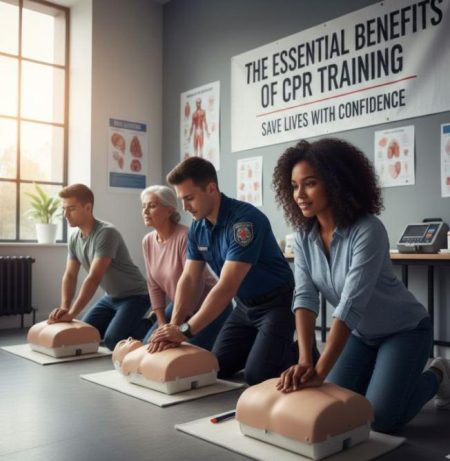A lot of people hear the word “opioids” and instantly think recovery is impossible. There’s this idea that once someone starts, they can’t stop, or that treatment is too painful or scary to even try. But the truth is much different. Recovery is tough, yes, but it’s also completely possible. With the right care and support, people rebuild their lives, even after years of struggling.
Let’s break down what recovery really looks like and clear up some of the myths that can make people afraid to take that first step.
Why People Think Recovery Is Impossible
Opioids affect the brain in a way that makes quitting feel harder than other habits. They change how the body reacts to pain and create a strong feeling of relief, which is why people return to them. Over time, the body begins to rely on opioids just to feel normal.
Because of this, many assume recovery means endless pain, harsh withdrawals, and no real chance of success. But that’s not the whole story. Treatment programs are designed to manage symptoms safely and guide people through the process step by step.
The Role of Treatment in Recovery
One of the most important things to know is that treatment isn’t just about stopping the drug. It’s about teaching new ways to live, cope, and handle stress without needing opioids.
Detox is usually the first step, where the body clears out the drug. This part can sound scary, but in reality, people don’t go through it alone. With medical support, withdrawal symptoms can be controlled so they’re much safer and easier to manage. After that, recovery continues with therapy, group sessions, and support systems built to last.
If someone wants a place to start, looking into trusted programs such as opioid addiction treatment can help explain what options exist and how the process works in safe, supportive settings.
Clearing Up the Biggest Myths
There are a lot of myths that make recovery seem harder than it really is. A few common ones include:
- Myth: People have to hit “rock bottom” before getting help. The truth is recovery works best when it starts early. Waiting until things get worse makes it harder, not easier.
- Myth: Detox is the same as recovery. Detox clears the body, but full recovery takes learning new habits, repairing relationships, and building confidence again.
- Myth: Relapse means failure. Many people experience setbacks during recovery. What matters most is getting back on track, not giving up.
These myths often stop people from reaching out, but recovery is a journey, not a one-time event.
What Recovery Really Feels Like
The process of recovery is different for everyone, but most describe it as a mix of challenges and hope. In the early stages, people focus on getting through withdrawal and learning how to live without opioids. This can feel exhausting, but it’s also the point where many start to feel a spark of freedom.
As time goes on, recovery shifts toward building routines, reconnecting with family, and setting goals. For some, that means going back to work or school. For others, it means finding joy in hobbies or simply being able to wake up without worrying about using again.
Support Systems That Make a Difference
Recovery doesn’t happen in isolation. Having people who understand what’s going on makes the process easier. That support can come from therapists, group meetings, or even close friends and family.
Support is what helps during the moments when cravings hit or when stress feels overwhelming. Being able to talk openly with others who have been through the same thing gives people the strength to keep going. Over time, these support systems create a sense of community, which helps make recovery feel less lonely.
Building a Future Beyond Opioids
One of the most powerful parts of recovery is realizing life doesn’t just go back to “normal”—it can become something better. People often find new purpose once they’re free from the constant cycle of use. This might be through work, volunteering, or rebuilding relationships that were hurt during addiction.
Recovery gives back simple joys too: enjoying time with family, eating meals without worry, or sleeping well through the night. These everyday moments become reminders of why the hard work is worth it.
Why Hope Matters
At the heart of recovery is hope. Without it, taking the first step feels impossible. But when people see that recovery is real—that others have done it and are living healthier lives—it gives them the courage to try.
Treatment centers and support groups work hard to show this hope in action. They connect people with stories of success and create environments where change feels possible. This hope is what keeps people moving forward, even during setbacks.
The Takeaway
Recovering from opioids isn’t about perfection. It’s about progress—taking one step, then another, and not giving up when things get tough. With safe treatment, strong support, and the right mindset, recovery is real and lasting. The truth is that people do recover. They build lives filled with stability, health, and new opportunities. The hardest part is simply starting—but once that choice is made, the path forward is clearer than most imagine.






